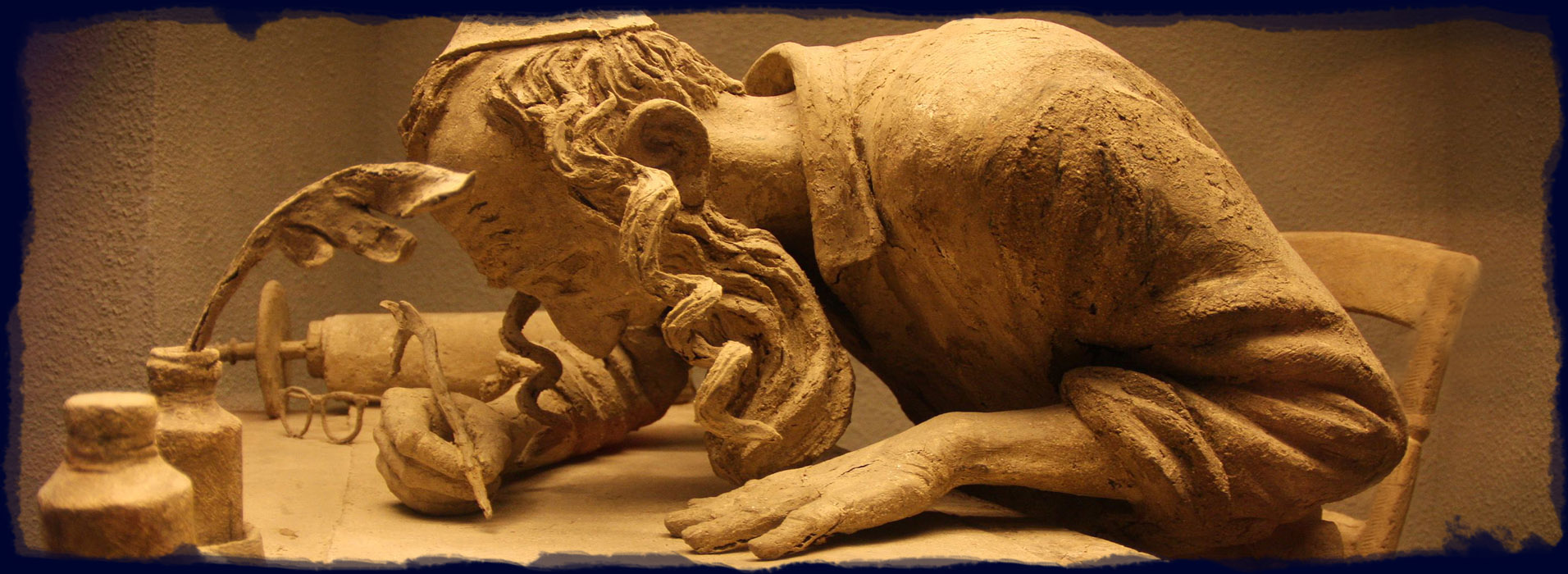 Ezra 7:10
Ezra 7:10
For Ezra had set his heart to study the law of the Lord and to practice it, and to teach his statutes and ordinances in Israel.
When I received my new Bible, I wrote this verse on the front fly page, together with a very pious prayer:
Lord, teach me from your Word and let it be for me a Word that shapes my life, and truth that guides my way; and grant me the grace to so live it and teach it that others also might walk in its light (September 1, 2002).
Why this verse—especially when Ezra-Nehemiah are amongst the most obscure books in the Bible for me? It has been ages since I have read them, and I have never really studied them in any depth. Yet this verse has been a benchmark in my life for many, many years. I came across it in the very early years of my Christian life, well before I was married, from memory.
The study had begun in Psalm 78:8: “And might not be as their fathers, a stubborn and rebellious generation; a generation that set not their heart aright, and whose spirit was not stedfast with God” (KJV). I searched through the Scriptures to discover what it meant to have a right heart toward God. Over and again I found reference to those who had ‘prepared their heart’ to seek the Lord. The phrase was especially prominent in 2 Chronicles, and I found it here in Ezra as well. Ezra prepared his heart to study the law of the Lord, and to do it, and to teach it.
What particularly attracted me to the verse was the order of the concepts: study, do, teach. A common saying is that one ought to practise what they preach. Although that might be true enough, this verse would shift the order and exhort us to preach what we practise. Chances are we would have many fewer and much shorter sermons!
Quite simply, the purpose of biblical study is obedience, understood in terms of a life shaped by the central vision of Scripture, as well as concrete obedience to specific precepts and commands where they apply. In my line of work this is a professional hazard. It is possible to study for other purposes: to prepare a sermon, to teach a lesson, to gain knowledge, to write an article—or a blog post, to prove a point, to dispute with a colleague, to win an argument, to make a name for oneself, to escape from less desirable activities, especially those where interaction with other people is required.
Not all of these other motives are necessarily wrong, although some are. Nor is it the case that the heart is missing, inactive or corrupt in them. Yet it may be. The biblical emphasis on the centrality of the heart is unmistakeable. The Lord looks on the heart… When the text says that Ezra set his heart, Fensham (The Books of Ezra and Nehemiah [NICOT], 101) notes that the word for ‘heart’ (lebab) connotes the entirety of one’s whole being. Ezra had devoted his life to this task, and, whether as result or as cause, “the good hand of the Lord was with him” (Ezra 7:6, 9).
Ezra’s study, practice and ministry was the focus of his life. He had become “skilled in the law of Moses” (v. 6). I suggest that his skill was not simply a mastery in terms of knowledge, but discernment and endurance with respect to application, as well as practical wisdom, understanding and passion in teaching.
Ezra is a prototype reformer, and I suspect the great reformers of the church have always been those who dig deeply into Scripture. They mine it to know God and his purposes more fully. They track back and forth through its pages to reappropriate the gospel in fresh ways for new generations, and to experience afresh the truth of the gospel in their own lives. They communicate it with power and passion in new times and conditions. They see a vision that demands their attention and obedience; they cannot help but proclaim it to others. I was not disobedient to the heavenly vision, but kept declaring…
I look back with some amusement at my pious prayer in the front of my Bible. I know that I have often failed to live up to the lofty sentiment it expresses. I know, too, that I have allowed a professional distance to infiltrate my spirituality with respect to Scripture. Further, being pious is also such poor form these days. Who wants to be holier than thou? Our Christianity, our hermeneutics are too sophisticated for that!
Yet I look back with some longing at my pious prayer in the front of that Bible. I recoil—rightly, I am convinced—from the narrow and legalistic kind of pietism that is so sure of itself and its truth that it cannot help but be holier-than-thou. But I long for a genuine, humble piety, a heart set right toward God, and so therefore toward others as well. It seems I have grown tired of the kind of ‘secular Christianity’ I see so much of. The hip kind of Christianity that is so biblically and theologically lite that it lacks any genuine substance, as well as the hip kind of Christianity that is biblically and theologically aware but jaded, cynical and spiritually fruitless. And so I pray,
Lord, teach me from your Word and let it be for me a Word that shapes my life, and truth that guides my way; and grant me the grace to so live it and teach it that others also might walk in its light (July 19, 2015).